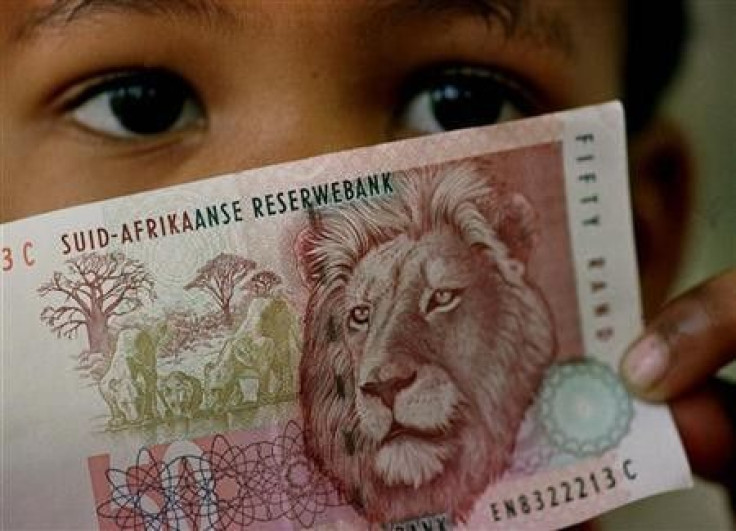Dragging Them Down: South Africa Now One Of Five Slowest-Growing Economies In Africa

Sub-saharan African economies are among the world's fastest growing, but one big laggard is dragging the entire continent back: South Africa. A report from the African Development Bank and the Organization for Economic Cooperation and Development ranks South Africa among the five slowest-growing economies across the continent, with a GDP growth rate of 3.2 percent forecast for 2013/14. The continent overall is doing better. "Africa’s economic growth was 4.2 percent in 2012 and is projected to accelerate to 4.5 percent in 2013 and further to 5.2 percent in 2014," said the report. "This forecast assumes a gradual improvement of global economic conditions."
The fastest-growing economies are Libya -- in first place with 11.6 percent, though volatility and political instability undermines its high rate -- followed by Sierra Leone, Chad, the Ivory Coast and the Democratic Republic of the Congo. Down at the bottom of the list, only these four countries are worse off than South Africa: Sudan, Egypt, Equatorial Guinea and finally Swaziland with a projected growth rate of only 1.3 percent for 2013/14.
Taken in context, the news isn't quite as bad as it sounds; South Africa, the continent's largest economy, has a statistical disadvantage because more established economies typically exhibit slower growth rates as they mature. Many of Africa's fastest up-and-comers -- including Libya, Sierra Leone and the Ivory Coast -- are emerging from major conflicts or economic crises, and growth is easier to come by when starting from such a low base.
Nonetheless, 3.2 percent growth is far from encouraging, especially considering the myriad problems slowing down South Africa's economy. Commodity prices are falling, which doesn't help a crucial mining sector already choked by labor disputes. Unemployment is up to 25.6 percent, according to government figures, and it's more than 50 percent for South Africans under 25. The value of the rand currency is trending downward, leaving the government hesitant to cut interest rates down from the South African Reserve Bank's long-standing 5 percent benchmark. To top it all off, the ruling African National Congress party, which is plagued by corruption and inefficiency, has been slow to implement the bold policies needed to spur private enterprise and ensure long-term economic growth.
While other African countries can boast enviable growth rates, they're also not immune to repercussions spilling over from South Africa's sluggishness. "We are forecasting a slight deceleration in sub-Saharan African growth ... mainly because South Africa, which contributes significantly to the region’s GDP, is slowing and automatically drags down the growth," Razia Khan, head Africa researcher at Standard Charter, said, according to South Africa's Business Day Live.
The report notes that global trends including the recessions that have rocked much of the West over the past five years haven't put too much of a damper on African growth. It adds, however, that "the growth momentum has eased in countries with strong links to global markets and also in those where political and social tensions have increased."
That description fits South Africa, though it doesn't have to. Now it will be up to the ANC, business leaders, and development experts to prevent the sheer size of the national economy from becoming a liability for growth.
© Copyright IBTimes 2024. All rights reserved.











